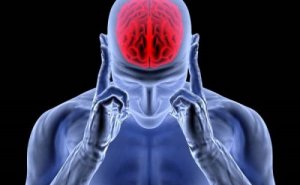The Release of Adrenaline: the Activation, Stress, and Headache Hormone


Written and verified by the doctor Gilberto Adaulfo Sánchez Abreu
We’ve all heard of adrenaline. You probably associate a release of adrenaline with activation, motivation, and that energy you need to feel good and get things done. This hormone, which also works as a neurotransmitter, can be a huge help.
That said, it’s interesting to note that this same substance can lead to chronic stress, headaches, and anxiety.
Today, let’s dive into adrenaline, this versatile substance your body needs so much.
What is adrenaline?

As we said, adrenaline is a hormone that also works as a neurotransmitter. Your body produces it in the adrenal glands and certain parts of your central nervous system.
Essentially, it’s a chemical mediator that works to change the activity of several different organs in your body, including your heart.
- The main purpose of the hormone is to prepare you to fight or flee when your brain interprets a certain stimulus as a threat.
- Another thing it does is allows you to give 100% of yourself: it lets you use your whole physical potential to reach an objective.
- It does this activation in several different ways: it increases your heart rate, blood pressure, and ability of your lungs to retain air. It also dilates your pupils and sends more blood to the muscles in your arms and legs.
- Another effect of the hormone – and probably it’s most well-known one – is its effect on your metabolism. It maximizes your glucose levels in order to send them to your brain.
- Another interesting fact about adrenaline is that it affects your digestive system when your brain senses danger. It slows down digestion and even intestinal movement for one very specific reason: so all of your energy can be used by your muscles.
Thus, it puts even essential things like digestion and nutrient absorption in second place, since these tasks take quite a bit of energy.
“Learn about 6 Effective Ways to Control Hormones that Cause Weight Gain”
How is the release of adrenaline controlled?
When a threat appears or when you experience an intense emotion like fear or anxiety, the nerves connected to your adrenal glands stimulate the secretion of adrenaline for it to be released into your blood stream.
The amount of adrenaline that is released is enough for you to feel it for 3 to 5 minutes. That’s the length of time you need to react to the situation without compromising your other organs.
However, the problem with adrenaline is when you experience stress for a long period of time. Then, another hormone, cortisol, encourages the release of adrenaline.
In this case, it isn’t in your body for only 3 to 5 minutes. It may last for days or even weeks, seriously affecting your health: your heart may race, you get dizzy, poor digestion, headaches…
Adrenaline: its positive and negative sides

Human beings would lose a bit of their true essence without this amazing hormone. However, after all that we said above, you may have a negative impression of it.
Nevertheless, you should understand how important adrenaline is for your daily life and even your personality.
Adrenaline makes you feel “alive”
We’ve all felt those pleasant “highs” when we’re doing extreme sports, dancing, on a roller coaster, in love…
All of these feelings make up what neurologists call a “brain drug.”
In fact, some people have a real addiction to those kinds of situations where adrenaline shoots up, like in high-risk activities.
Another interesting point is that adrenaline can keep depression away. This is becauase it also plays a role in serotonin production, the hormone associated with mental well-being.
Doing certain sports or having a good time with friends is a great way to release adrenaline.
“Find out how to Break Out of Your Comfort Zone, It Could Be the Best Decision Ever”
The consequences of too much adrenaline

Today’s high-pressure lifestyle with obligations and stress that won’t stop causes this “abnormal” situation in your body. In other words, too much of this substance may be in your blood.
You’ll notice it immediately with these symptoms:
- Muscle pain
- Tension in your neck, arms, or legs,
- Dizziness
- Blurry vision or pressure in your eyes
- Headaches
- Trouble sleeping
- Stomachaches
- Hypertension
- Persistent tiredness
To conclude, the key to health is to maintain your adrenaline in a perfect, delicate balance.
Leading an active lifestyle with both exercise and socialization along with relaxation and good stress management is a wonderful way to work on your quality of life.
All cited sources were thoroughly reviewed by our team to ensure their quality, reliability, currency, and validity. The bibliography of this article was considered reliable and of academic or scientific accuracy.
- Comité de Medicamentos de la Asociación Española de Pediatría. (2017). Adrenalina. Pediamécum.
- Brandan, N., Llanos, I., Díaz, D. A., & Rodríguez, A. (2010). Hormonas Catecolamínicas Adrenales. Cátedra de Bioquímica. https://doi.org/doi:10.2514/6.1998-2696
- Adrenalina. (s.f.). En Wikipedia. Recuperado el 24 de septiembre de 2017 de https://es.wikipedia.org/wiki/Adrenalina
This text is provided for informational purposes only and does not replace consultation with a professional. If in doubt, consult your specialist.








